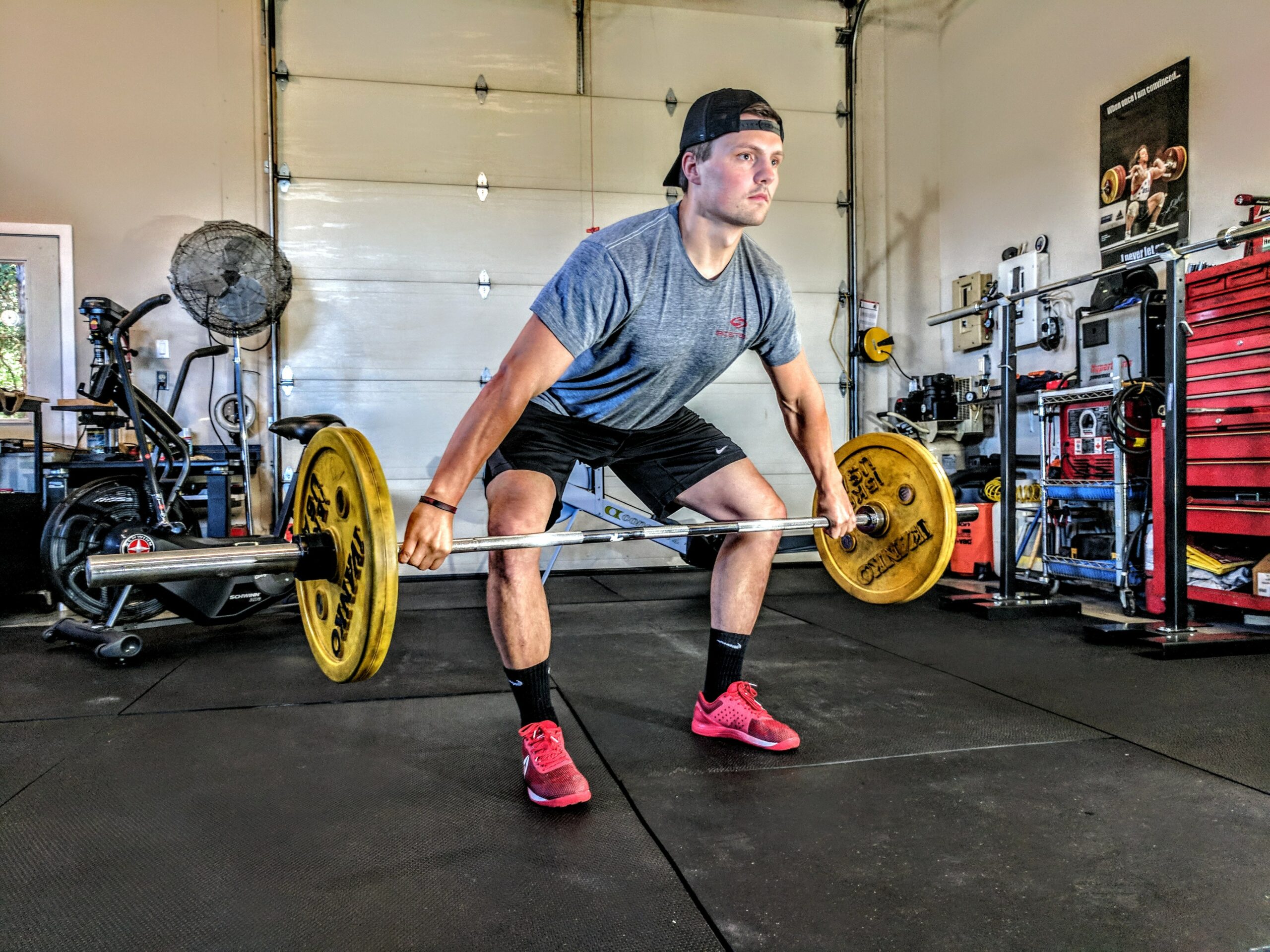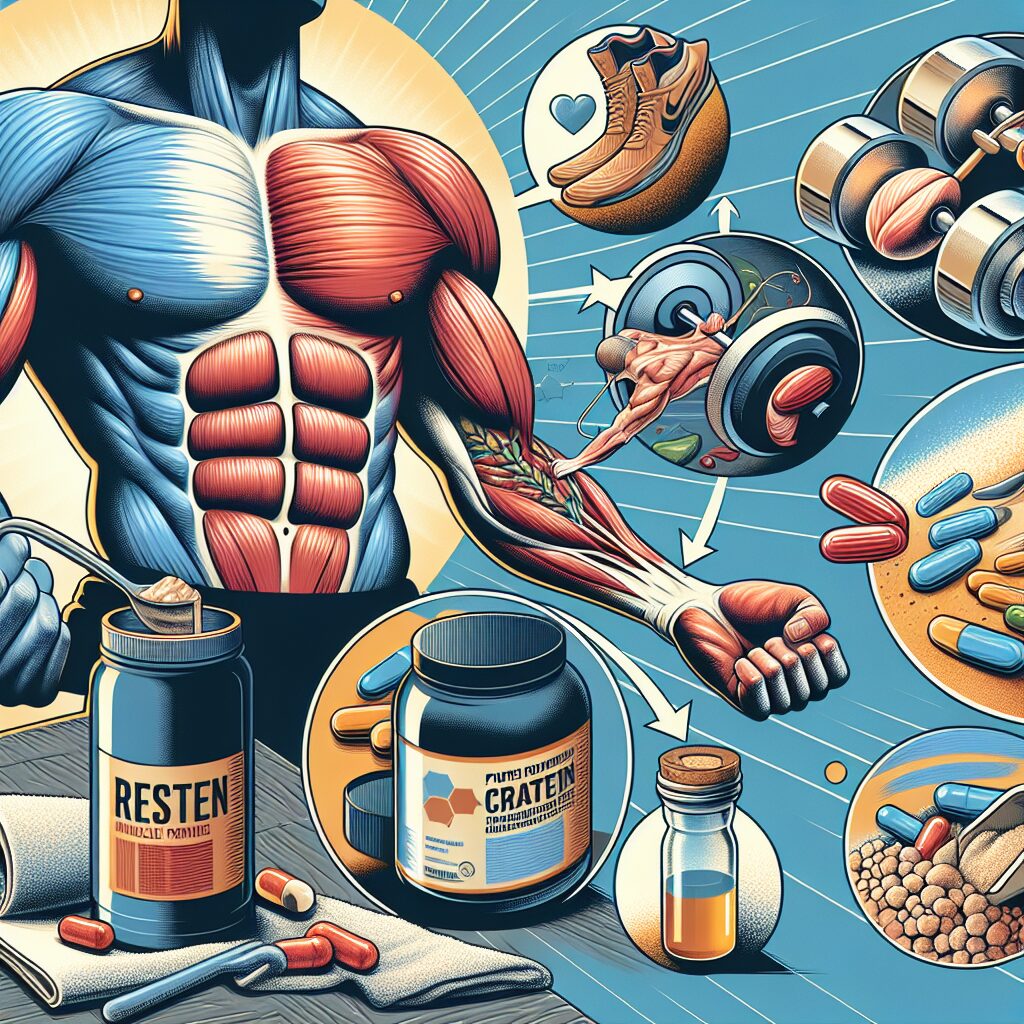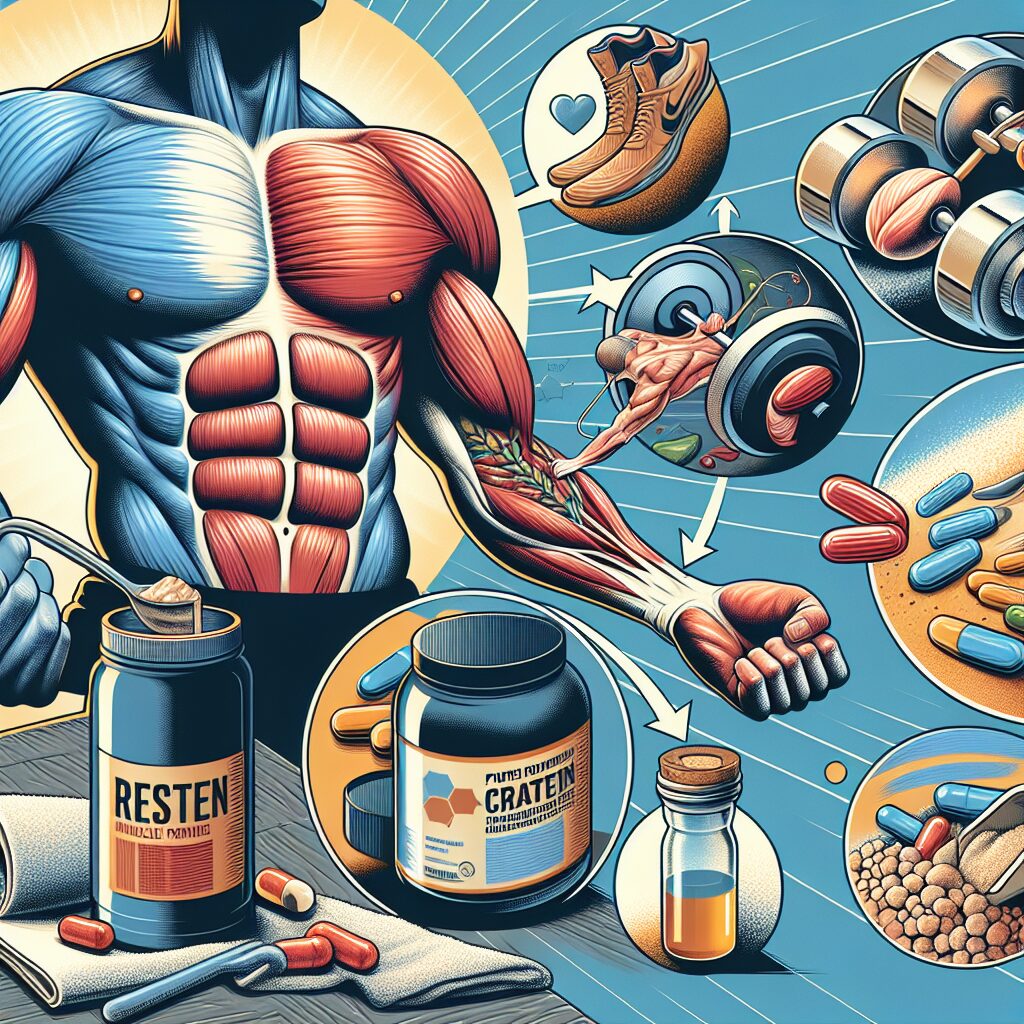If you’re looking to maximize your muscle recovery and get back in the gym strong, then you’ve come to the right place! In this article, we’ll explore the best supplements that can aid in muscle repair and promote optimal recovery. Whether you’re a fitness enthusiast or an athlete, these supplements can help you bounce back faster, reduce muscle soreness, and enhance your overall performance. So, let’s dive in and discover the top-notch supplements that can take your muscle recovery to the next level!

Protein Supplements
When it comes to muscle recovery, protein is a crucial component. Protein supplements can provide the necessary amino acids that your muscles need to repair and rebuild themselves after an intense workout. Among the various protein supplements available, whey protein and casein protein are two popular options.
Whey Protein
Whey protein is a fast-digesting protein that is ideal for post-workout recovery. It is derived from milk and contains all the essential amino acids your body needs. Whey protein is easily absorbed by the body, allowing for quick delivery of amino acids to your muscles. This makes it an excellent choice for promoting muscle growth and repair.
Casein Protein
On the other hand, casein protein is a slow-digesting protein that provides a sustained release of amino acids into the bloodstream. This slow digestion makes it an ideal option for nighttime use, as it can keep your muscles nourished and supported throughout the night. Casein protein is often recommended to individuals who are looking to support muscle recovery over an extended period of time.
Branched-Chain Amino Acids (BCAAs)
Another type of protein supplement that can aid muscle recovery is branched-chain amino acids (BCAAs). BCAAs are composed of three essential amino acids: leucine, isoleucine, and valine. These amino acids are directly involved in the muscle-building process and can help reduce muscle soreness. BCAAs can be consumed both before and after workouts to support muscle repair and prevent muscle breakdown. They are especially beneficial for those engaging in intense physical activities.
Creatine
Creatine is a naturally occurring compound that is stored in your muscles and used as a source of energy during high-intensity exercise. It has been extensively studied and proven to enhance muscle strength, power, and recovery.
Benefits of Creatine
Creatine supplementation can lead to improved performance and increased muscle mass. It works by replenishing the ATP (adenosine triphosphate) stores in your muscles, which are responsible for providing energy during intense workouts. By increasing ATP availability, creatine allows your muscles to work harder and recover more efficiently. Additionally, creatine has been shown to reduce muscle damage and inflammation, further aiding in the recovery process.
Proper Dosage and Timing
To experience the full benefits of creatine, it is important to follow the proper dosage and timing guidelines. A common loading phase involves taking 20 grams of creatine per day for the first week, followed by a maintenance phase of 3-5 grams per day. It is recommended to take creatine with a carbohydrate-rich meal or beverage, as insulin can enhance its absorption. Timing-wise, consuming creatine post-workout can be beneficial due to increased blood flow to the muscles.
Glutamine
Glutamine is the most abundant amino acid in your body and plays a vital role in muscle recovery. While your body can produce its own glutamine, during periods of intense exercise, your glutamine stores may become depleted. Supplementation can help replenish these stores and aid in muscle repair.
Effects of Glutamine on Muscle Recovery
Glutamine has been shown to reduce muscle soreness and promote muscle glycogen synthesis, which is important for energy replenishment. It also supports immune function, as intense exercise can temporarily weaken the immune system. By enhancing immune function, glutamine can help protect against illness and promote faster recovery. Additionally, glutamine has been shown to reduce muscle protein breakdown, further supporting muscle recovery and growth.
Recommended Dosage
For individuals looking to supplement with glutamine, a daily dose of 5-10 grams is typically recommended. It is important to note that the benefits of glutamine are most pronounced during periods of high physical stress, such as intense workouts or prolonged endurance exercise. Therefore, timing glutamine supplementation around these periods can be particularly beneficial.
Omega-3 Fatty Acids
Omega-3 fatty acids are essential fats that play a crucial role in overall health and wellbeing. They are known for their anti-inflammatory properties, which can significantly contribute to muscle recovery.
Anti-Inflammatory Properties
Intense exercise can cause inflammation in your muscles, leading to soreness and stiffness. Omega-3 fatty acids, specifically EPA and DHA found in fatty fish like salmon or in fish oil supplements, have been shown to alleviate this inflammation. By reducing muscle inflammation, omega-3s can speed up the recovery process and help alleviate post-workout muscle soreness.
Dosage and Sources
To reap the benefits of omega-3 fatty acids, it is recommended to consume around 250-500 mg of EPA and DHA combined per day. This can be achieved through dietary sources such as fatty fish, flaxseeds, chia seeds, or through fish oil or algae-based supplements. It is worth mentioning that omega-3 fatty acids not only support muscle recovery but also provide numerous other health benefits, including improved heart health and brain function.

B Vitamins
B vitamins are a group of essential vitamins that are involved in various bodily functions, including muscle recovery and repair. They play a vital role in energy metabolism and can aid in the reduction of exercise-induced muscle damage.
Importance of B Vitamins for Muscle Recovery
B vitamins, such as B1 (thiamine), B2 (riboflavin), B3 (niacin), B6 (pyridoxine), B9 (folate), and B12 (cobalamin), are involved in the conversion of food into energy. During exercise, your body utilizes these vitamins to convert carbohydrates, proteins, and fats into usable energy for your muscles. Additionally, B vitamins support the production of red blood cells, which are responsible for delivering oxygen to your muscles, facilitating their recovery.
Different Types of B Vitamins
Each B vitamin has unique roles and benefits in relation to muscle recovery. For example, B6 is involved in protein synthesis and muscle repair, while B12 plays a crucial role in nerve function and the formation of red blood cells. By ensuring an adequate intake of all B vitamins, you can support optimal energy production, reduce exercise-induced muscle damage, and promote efficient muscle recovery.
Vitamin D
Vitamin D, often referred to as the “sunshine vitamin,” is a fat-soluble vitamin that plays numerous roles in your body, including supporting muscle recovery.
Role of Vitamin D in Recovery
Vitamin D is involved in various processes related to muscle health and recovery. It aids in calcium absorption, which is essential for muscle contraction and function. Additionally, vitamin D has been linked to improved muscle strength, reduced risk of muscle injuries, and enhanced muscle function. Vitamin D may also have anti-inflammatory effects, further supporting muscle recovery.
Sources and Recommended Dosage
The primary source of vitamin D is sun exposure, as your skin produces it when exposed to sunlight. However, depending on your location and lifestyle, it may be challenging to obtain sufficient vitamin D solely from sun exposure. In such cases, vitamin D supplements or dietary sources such as fatty fish, fortified dairy products, and egg yolks can be beneficial. The recommended daily intake for vitamin D varies, but ranges between 600-800 IU (International Units) for most adults.

Magnesium
Magnesium is an essential mineral that is involved in over 300 biochemical reactions in your body, including muscle function and recovery.
Benefits for Muscle Relaxation
Magnesium plays a crucial role in muscle relaxation, which is essential for efficient recovery and to prevent muscle cramps. Intense exercise can deplete your body’s magnesium levels, leading to muscle tension and potential muscle cramping. By ensuring an adequate intake of magnesium, you can support muscle relaxation and reduce the likelihood of post-workout muscle cramps.
Supplementation Recommendations
To supplement with magnesium, magnesium citrate or magnesium glycinate are often recommended due to their high absorbability. The recommended daily intake of magnesium varies depending on age, sex, and activity level. Generally, a dose of around 200-400 mg per day is suggested for adults. However, it is worth noting that excessive magnesium intake can lead to gastrointestinal issues, so it is important to consult with a healthcare professional before starting magnesium supplementation.
Zinc
Zinc is an essential mineral involved in various enzymatic reactions in your body, including those related to muscle recovery and repair.
Importance of Zinc for Recovery
Zinc plays a critical role in protein synthesis, immune function, and tissue repair. During intense exercise, zinc levels can become depleted, potentially hindering muscle recovery and immune system function. Zinc supplementation can help support optimal protein synthesis, muscle repair, and immune function, promoting faster recovery from intense physical activity.
Recommended Daily Intake
The recommended daily intake of zinc varies depending on age, sex, and activity level. For adults, the recommended daily intake ranges from 8-11 mg. It is worth noting that excessive zinc intake can have adverse effects on your health, so it is important to follow the recommended dosage guidelines and consult with a healthcare professional if you have specific concerns.

Tart Cherry Juice
Tart cherry juice is a natural supplement that has gained popularity for its potential muscle recovery benefits.
Natural Anti-Inflammatory Properties
Tart cherry juice contains high levels of antioxidants and anti-inflammatory compounds, which can aid in reducing exercise-induced muscle damage and inflammation. These antioxidants, such as anthocyanins, have been shown to possess potent anti-inflammatory properties, potentially speeding up the recovery process and reducing muscle soreness.
Suggested Consumption
To experience the potential benefits of tart cherry juice, consuming around 8-12 ounces (237-355 ml) per day is recommended. It is important to choose pure, unsweetened tart cherry juice to avoid excessive sugar intake. Additionally, tart cherry juice can be consumed both pre and post-workout to potentially enhance muscle recovery and reduce inflammation.
Turmeric
Turmeric is a spice commonly used in cooking and has gained popularity for its potential health benefits, including its effects on muscle recovery.
Curcumin’s Effects on Muscle Recovery
The active compound in turmeric, curcumin, has been shown to possess anti-inflammatory and antioxidant properties. These properties can aid in reducing exercise-induced muscle damage and inflammation, potentially promoting faster recovery. Curcumin has also been studied for its potential to alleviate muscle soreness and improve muscle strength and function.
Ways to Incorporate Turmeric into Diet
To incorporate turmeric into your diet, you can use it as a spice in cooking or prepare turmeric-infused beverages such as golden milk. Additionally, curcumin supplements are available for those seeking a more concentrated dose. It is worth noting that curcumin’s absorption is enhanced when consumed with black pepper or fat, so including these components in your turmeric consumption can maximize its benefits.
In conclusion, when it comes to muscle recovery, various supplements can aid in supporting the repair and growth of your muscles. Protein supplements such as whey protein and casein protein provide essential amino acids necessary for muscle repair and growth. BCAAs can also support muscle recovery and reduce muscle soreness. Other supplements like creatine, glutamine, omega-3 fatty acids, B vitamins, vitamin D, magnesium, zinc, tart cherry juice, and turmeric have been shown to possess unique benefits that can aid in muscle recovery. It is important to remember that while these supplements can be beneficial, they should be used in conjunction with a balanced diet and regular exercise routine. As always, it is recommended to consult with a healthcare professional before starting any new supplement regimen.





